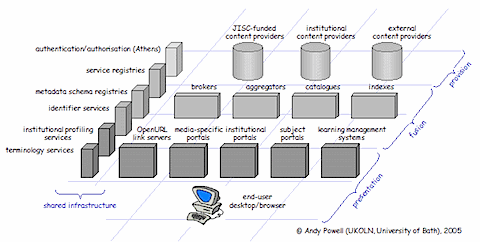A key aim of this JISC programme newsletter is to highlight some of the outputs and emerging themes from across the ten projects that make up the ‘JiscEXPO‘ programme funded by the 2/10 grant funding call, and, if possible, use these to identify any themes that cut across other ongoing JISC programmes.
Why do identifiers matter for research?
Imagine that you are a senior manager in an institution within the UK Higher Education sector with responsibilities for research: you have read some basic details about unique researcher identifiers and perhaps institutional identifiers. However, it may not be immediately apparent just how important these issues are, which may seem on the face of it to be a relatively superficial and/or trivial organisational matter. Clearly, any such strategic decision-maker will long have been aware of the demands of the Research Excellence Framework (REF) and its predecessor the Research Assessment Exercise (RAE), in which successful reporting of the best research outputs of university departments is crucial to the on-going funding of the institution. This is particularly central to the work of research-led universities, which is an increasingly competitive sector: even universities that formerly focussed more on teaching than research are increasingly aware of the need to drive up standards of quality research in order to secure additional funding.





